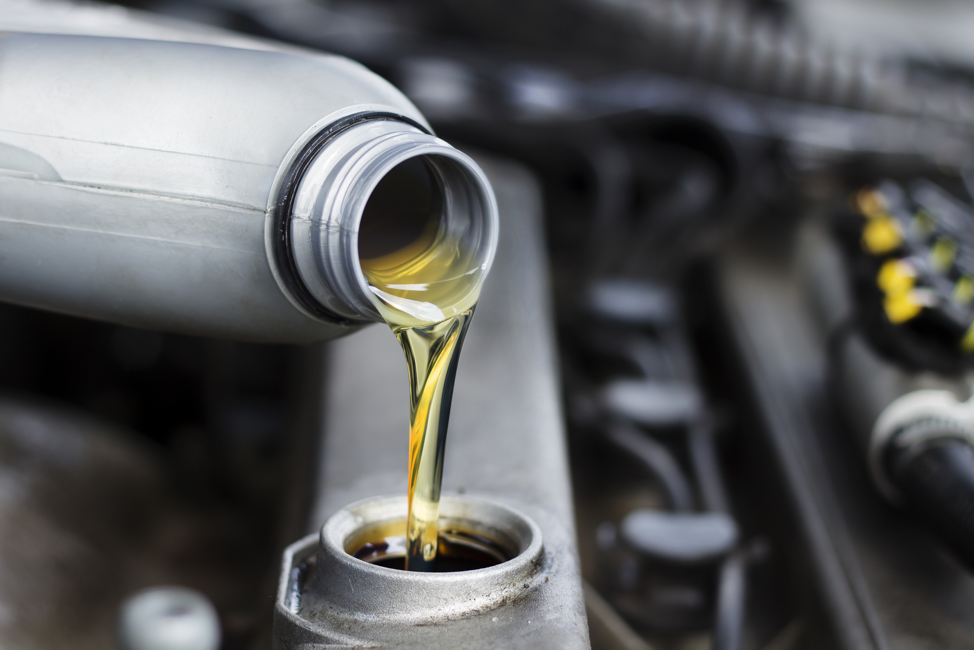
- SALES : (866) 707-7664
- PAYMENTS : (866) 902-7955
- 11646 PRAIRIE AVE, HAWTHORNE, CA 90250
- MON - SAT 8AM - 8PM | SUN 10AM - 6PM
- SALES : (866) 707-7664
- PAYMENTS : (866) 902-7955
- 11646 PRAIRIE AVE, HAWTHORNE, CA 90250
- MON - SAT 8AM - 8PM | SUN 10AM - 6PM
Why Does My Car Need An Oil Change?

Why Does My Car Need An Oil Change?
As cars continue to become more and more electronically self-sufficient, one thing is not likely to change in the near future – and that is, giving your car a routine oil change. There are parts of the vehicle that are still 100% mechanical, and knowing when to get an oil change will keep your vehicle able to do three important functions:
- Lubricate moving parts – oil at the right weight and grade reduces the wear and tear from friction between moving parts that could otherwise seize if not continuously oiled.
- Keeps the engine cool – between the heat from the combustion of oxygen with fuel and the friction of moving mechanical parts, your car engine would be extremely hot if the oil is absent or deteriorated
- Helps clean the motor – metallic particles, oil sludge, and other contaminants will cause additional wear on the engine. Changing your oil and filter eliminates the circulation of sludge from old, dirty oil throughout the engine.
When your car oil gets dirty, fresh oil and a new engine oil filter will keep your vehicle operating at its maximum potential by absorbing more of the heat generated by friction between internal moving parts – such as the valves and pistons located near the engines combustion chamber. Without any oil, your car’s engine can overheat and cause major damage. Dirty oil becomes thick with sludge – and the additives that are in the oil to help keep your engine clean become depleted. The result is corrosive metals and sludge deposits begin to clog engine passageways.
When to Get an Oil Change
It is much easier and cheaper to have routine oil changes, rather than replace an engine that has been damaged due to mechanical parts not being properly lubricated or overheating of the engine. Keep track of each oil change, relying either on the vehicle manufacturer’s suggested schedule or a good rule of thumb: “Change your car’s engine oil every three months, or 3,000 miles.”
How many miles you drive daily and the condition of your car’s engine are two factors that can affect when to get an oil change. The truth is, newer cars can now be driven 5,000 miles or more between oil changes. And older cars, even though they are not driven very often can develop a thickened oil due to the oil viscosity breakdown. This would meaning changing the oil even though accrued mileage may not dictate a change.
Other Factors that Affect Engine Oil
While mileage and the age of the vehicle are the main factors in knowing when to get an oil change, there are other factors that can also affect your engine’s oil and operation – including the way you drive, how old your engine is, and where you live. Hard drivers that rev the engine more or accelerate and decelerate quickly can expect the oil in the vehicle to become dirty, faster. Also hotter climates and more polluted urban areas can cause your engine oil to break down or thicken.
At Hawthorne Auto Square, our service experts are ready to help you take the best care or your new vehicle. With regular oil changes, you can expect to get more miles from your car’s engine and better performance day-to-day. A regular oil change is one preventative maintenance service you won’t regret taking advantage of.
Latest News


Why Should I Buy a Used Toyota Camry?

Bankruptcy and Car Ownership: How BHPH Can Help


Used Car Price Trends for 2025: What Buyers & Sellers Need To Know
Get approved
It only takes a few minutes and won’t affect your credit.
- Pre-Inspected Cars
- Clean Title
- Under Warranty
Latest Videos
What Do I Need To Buy A Car - Hawthorne Auto Square
Second Chance for a New Car - Hawthorne Auto Square
Pre Approved Auto Lone – Hawthorne Auto Square
- SALES : (866) 707-7664
- PAYMENTS : (866) 902-7955
- 11646 PRAIRIE AVE, HAWTHORNE, CA 90250
- MON - SAT 8AM - 8PM | SUN 10AM - 6PM
© 2025 Hawthorne Auto Square. All Rights Reserved. Website Designed by: Ad Leverage | Privacy Policy | Terms of Service | Manage Cookies | DSAR |License #91864
© 2025 Hawthorne Auto Square. All Rights Reserved. Website Designed by:
Ad Leverage | Privacy Policy | Terms of Service
License #91864

